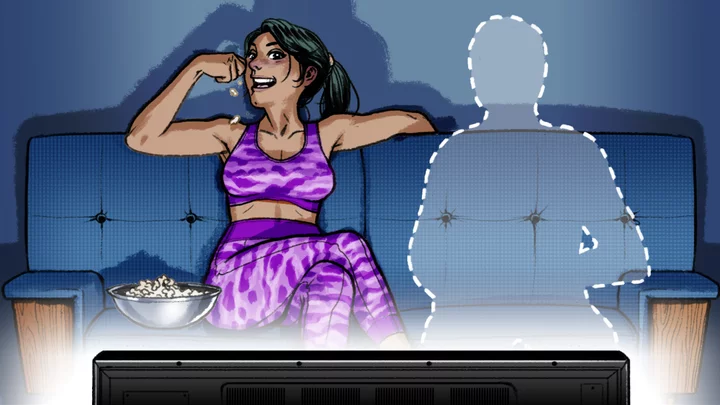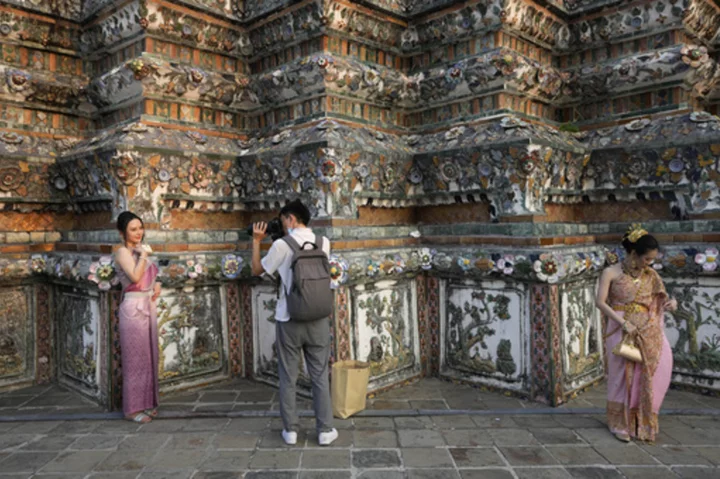Online you're no longer delusional, now you're delulu.
You're delulu if you think he's going to text you. You're delulu if you're still thinking about someone you met once years ago. If you have a propensity for delusion you reside in delululand. It's not a crush, but a delusionship.
The slang term originated in the K-pop fan community in 2014 to describe delusional fan behavior like the belief you'll end up with your favorite idol. Today, the term's use is no longer limited to discussing these parasocial delusions; it's escaped fandom and entered dating discourse.
SEE ALSO: #Mermaidcore is making waves this summerAccording to the internet, nearly anything can be delulu – the curse of an internet buzzword is that it swiftly loses any sort of concrete meaning. The term is closely related to other trending internet speak, including "clowning" and listening to "the voices."
Like so many words before, its overexposure online removed delulu from its original context. Beginning last November, on one side of the internet delulu became the trendy shorthand for a certain kind of young woman, known to some as the girlfailure, to describe her approach to dating. "If you're a girl who is like, 'I'm so crazy, because I texted this guy twice in a row.' You take that and turn it into an aesthetic identity instead of just being a human being," Hannah Raine, the co-host of Rehash, a podcast that investigates the internet's buzziest words and archetypes, told Mashable.
The internet forces young women to conform themselves into easily identifiable aesthetics, and the girlfailure exists as part of two rivaling factions go by many names: the girlboss / clean girl / that girl and the girlfailure / messy girl / delulu girl. While the girlboss might earnestly partake in manifestation, the girlfailure opts for delusion. Without its own definition aside from delusional, many lean on describing this type of woman in place of a definition.
These ideas, manifestation and delusion, are two sides of the same coin. Delulu entered the mainstream at the peak of TikTok's manifestation craze in January with the popularity of "Lucky Girl Syndrome," where users promised that repeating "I am so lucky; everything works out for me" would yield results.
SEE ALSO: TikTok's Lucky Girl Syndrome is the latest regurgitation of 'The Secret'"[Delulu] is an ironic take on [the manifestation craze] because while there's an earnest aspect of it, it's also a winking nod at the fact that you know you're being a little crazy by thinking these things or wanting these things," explained Raine.
The empress of delululand
One of the most prolific posters of delulu girl content is TikTok creator @isabelunhinged. Her profile boasts over 52.5 million likes and over 336,7000 followers. Her bio reads, "Empress of Delululand." She posted her first video about being delusional last July. The video read, "You're in his DMs and I'm stalking him on Spotify and Googling the lyrics to every newly added song and convincing myself that it's about me." Then it became her brand.
She has dozens of videos documenting her delusions. In one that garnered 3.5 million views she writes, "when i'm tryna explain a theory of mine to some1 but then realize it doesn't make sense when spoken outside of my chronically delusional paranoid mind."
In some her videos she uses delusional, in others she uses delulu. "Delusional is a harsh word, and it has a lot of negative connotations, whereas delulu is cute, silly, and light," Isabel Timerman, the 25-year-old model and content creator better known as @isabelunhinged, told Mashable.
Timerman's videos about being delulu clearly resonate; some of her comments read, "my delulu queen" and "get out of my head." She attributes her success to her relatability. "I talk about these things that nobody else really wants to admit," said Timerman. But her million of likes suggest while no one wants to admit it, they're feeling delusional too.
Delulu or delulu
The entirety of this delulu discourse exists alongside a clinical definition of delusions which are a symptom of psychotic disorders like schizophrenia. "A delusion is a fixed and false belief despite evidence to the contrary. Whatever that belief is, whether it's reasonable or kind of out there, even if I show you that there's evidence against this belief you still believe in it," Dr. Howard Liu, a child and adult psychiatrist and chair of the American Psychiatric Association's council on communication, explained to Mashable. The ability for a person to recognize a delusion is based on insight, Liu said. And when experiencing a state of delusion, loved ones and mental health professionals can provide a reality check.
"It can be very mild, or it can be very dangerous where you suddenly distrust your loved ones or your boss, or you believe that somebody famous is in love with you and start stalking them."
SEE ALSO: From delulu to rizz, 2023's most viral internet slang definedThe diminutive of delusional has not gone ignored by those with psychotic disorders and other mental illnesses. In fact, some have adopted it. But even then it's not exclusively being used to describe clinical delusions, further conflating what delulu even means. For example, on TikTok some users post about their OCD symptoms using the word delulu — and delusions are not a symptom of OCD. "My sense is that it is being used a little bit like a catch-all for something that's fooling you," said Liu. And that thing that's fooling you could be the obsessive intrusive thoughts characterized by OCD.
"I love that this generation is talking about mental health in ways that no other generation has, but sometimes there can be a tendency to overgeneralize terms," explained Liu. "I just want to make sure that we don't, in an attempt to make things more conversational, minimize that lived experience and the actual challenges that people [who experience delusions] face every day."
Why are we delulu?
The tendency to overgeneralize terms doesn't exist just in the clinical use of delulu. It's unclear what the definition of delulu even is, despite its evident relatability.
But its sister dating term, delusionship, has a clear definition: it's a crush, rebranded. However, the new term implies that having a crush is crazy. And how does that impact dating? Dr. Caroline West, Bumble's dating expert weighed in. "It's OK to daydream about people and potential relationships, but picking terms that are softer can help us feel more secure and more realistic about the situation. For example, situationship is a term that is not derogatory while highlighting the uncertain nature of an interaction or relationship," she told Mashable.
An argument can be made for women reclaiming behavior that might deem them crazy by men as "delulu." But on the other hand, if the "delulu" things Timerman and others describe across social media are so relatable, why are they "delulu" and not just a reaction to the circumstances we live in?
The popularity of delulu speaks to a dissatisfaction with casual dating that renders any search or desire for connection farfetched. "We're all having trouble with casual dating, and so many girls feel defeated in their situationships that it's almost an act of solidarity or finding community on TikTok by being like we're all crazy," Maia, the YouTuber who goes by Broey Deschanel and Raine's Rehash co-host, explained to Mashable.
It's unusual to see a term created to describe parasocial behavior turn into something used broadly to talk about dating. Typically, it's the other way around. This trajectory suggests a broader evolution of our relationship to dating.
What's clear is that delulu has now lost all tangible meaning. It's less of a word and more of a vibe, as viral trends often go. The more Timerman talked about being "delulu" the more abstract her conception of it became. "It's not letting reality disrupt your thoughts and dreams," she said. "If you're not delulu then you're not really a dreamer. You take life too seriously."









